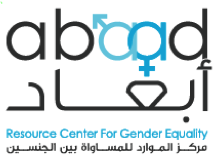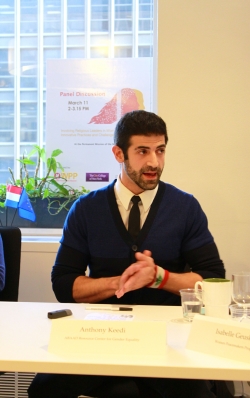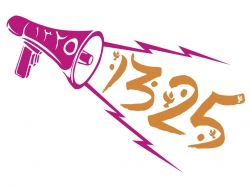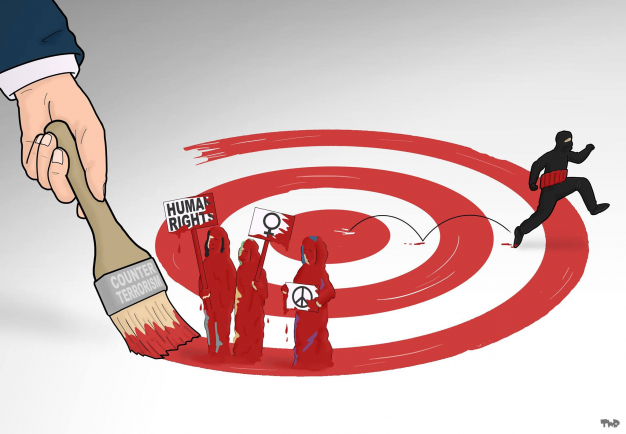Interview by WPP volunteer Laura Eggens
From February 16-17, the Dutch Ministry organizes the Symposium "Women: Powerful Agents for Peace & Security". WPP will be facilitating two sessions during the symposium about mobilizing men and integrating a masculinities approach in UNSCR 1325 implementation. WPP, together with several WPP partners will highlight the added value and need to include a masculinities approach in UNSCR 1325 implementation. One of the participants is Anthony Keedi of ABAAD - Resource Center for Gender Equality, a close partner organization of WPP, sharing his experience in integrating a masculinities approach for gender equality & peacebuilding in the MENA region.
On the occasion of the panel discussion on "Amplifying the Voices of Women in the MENA Region", WPP volunteer Laura Eggens interviewed Anthony about his experience in the field of masculinities. Through ABAAD he is involved in trainings geared towards engaging men for the Women, Peace and Security (WPS) agenda. In this column, Anthony Keedi highlights the socialized nature of gender norms, and how that contributes to conflict and reinforcing patriarchal power structures. Specifically, he discusses the use of violence, which has become a central part of what it means to be 'masculine'. He shares how through ABAAD he is involved in engaging men and boys in thinking about the causes and effects of this socialization process and how they can transcend it in order to ensure a more inclusive society with equal participation for women.
I was raised in a patriarchal society. I used to be physically violent with men. As far as traditional masculinity is concerned, I was a man’s man. Because it was considered ‘normal’, I was largely unaware of the emotional and psychological violence in my relationships with women. Because I was not comfortable feeling hurt or vulnerable, I would attack. I wanted to be close to people, but my inability to express that need and my vulnerability made me push them all away. I finally realized what I was doing when I started reading about the topic, and had to reflect on my own actions during my psychology studies. My girlfriend called me out on my actions. It was tough to take at first, but I listened and made changes. As uncomfortable as it can still be to be vulnerable, I am much happier being that person. Now, being in the fortunate position to be educated and get into this type of work, I feel like I can give back a little. That is why I do what I do. Why I try to make more men aware of the consequences of our gender socialization.
 It is this personal transformative process that we at ABAAD, like WPP, really believe in. We don’t just train people on the theory of gender socialization, but we challenge individuals to think about themselves. That is where change happens. When you can critically reflect on yourself, without blame, but understanding that we’ve all been shaped within patriarchal society, then any work that comes out is phenomenal. It might be the longer road, but it’s the right road.
It is this personal transformative process that we at ABAAD, like WPP, really believe in. We don’t just train people on the theory of gender socialization, but we challenge individuals to think about themselves. That is where change happens. When you can critically reflect on yourself, without blame, but understanding that we’ve all been shaped within patriarchal society, then any work that comes out is phenomenal. It might be the longer road, but it’s the right road.
Right now we are working with WPP on UN Security Council Resolution (UNSCR) 1325 and the Women, Peace and Security (WPS) agenda, and how to engage men and concepts of masculinities in that. This is a project that goes a step beyond our other activities, in my opinion. When working on WPS, I think we’re breaking patriarchy itself. We want to make men really see the benefit of engaging women in politics, peacebuilding and all facets of leadership in our society.
We train NGOs in the MENA region working on UNSCR 1325 on concepts of masculinities – and specifically the violence that is central to how we raise men in our societies. But it is a challenge to get these NGOs, who are focused on National Action Plans for UNSCR 1325, to see the necessity of first understanding the building blocks of the socialization process for men. Work on WPS needs to go beyond empowering women only, even though that remains very important. We need to understand the people we are negotiating with at the end of the day, the people at the base of the patriarchal structure, and how we’re socialized every single day towards male privilege.
 Traditional gender roles are one of the biggest lies of human history, which is so strong that women think they can’t be leaders, or men think that they can’t cry. It is ridiculous that they deny their own human nature because someone told them they should. Breaking down gender socialization can begin literally anywhere: from how you dressed this morning to your beliefs on family – everything is gender. We start exploring such beliefs, and slowly people start to understand that ever since they were a child, they were told how to behave. They realize how much of this assimilated in their personality, which is why society stagnates at that level. We ask people to think about the first time they were restricted from doing something because of their sex. For example, girls were told they can not run, because they are girls and boys were not allowed to cry. We use that as a starting point to talk about how women are programmed to play non-competitive games, to be caring, submissive, quiet and sacrificial, to accept abuse, to not have a say in society, and not to be a leader. Whereas men are encouraged to be very competitive and violent, to have a high threshold for pain, and to never show their emotions. There are boys who can’t hold a pencil and write their names but they feel very comfortable with a plastic gun in their hands because everyone reinforces their playing with guns. Scaling that up, we see how many men get excited about violence and war. In every video game, in every superhero that they have seen, there is a benevolent person fighting for justice through violence. They’re never taught to solve problems through dialogue and active nonviolence.
Traditional gender roles are one of the biggest lies of human history, which is so strong that women think they can’t be leaders, or men think that they can’t cry. It is ridiculous that they deny their own human nature because someone told them they should. Breaking down gender socialization can begin literally anywhere: from how you dressed this morning to your beliefs on family – everything is gender. We start exploring such beliefs, and slowly people start to understand that ever since they were a child, they were told how to behave. They realize how much of this assimilated in their personality, which is why society stagnates at that level. We ask people to think about the first time they were restricted from doing something because of their sex. For example, girls were told they can not run, because they are girls and boys were not allowed to cry. We use that as a starting point to talk about how women are programmed to play non-competitive games, to be caring, submissive, quiet and sacrificial, to accept abuse, to not have a say in society, and not to be a leader. Whereas men are encouraged to be very competitive and violent, to have a high threshold for pain, and to never show their emotions. There are boys who can’t hold a pencil and write their names but they feel very comfortable with a plastic gun in their hands because everyone reinforces their playing with guns. Scaling that up, we see how many men get excited about violence and war. In every video game, in every superhero that they have seen, there is a benevolent person fighting for justice through violence. They’re never taught to solve problems through dialogue and active nonviolence.
We look at this socialization process in all the work we do. At ABAAD, we have a free psychological clinic for men who struggle with issues of self-esteem and violence, because they are failing to fit the traditional masculine identity to provide for their family. We talk about how violence can be a reaction to stress in their life, and how stress can turn into anger and violence. We help him understand the gender socialization process that made him regard this as his primary role, but that he is much more than that. We also work heavily with youth, ages 8 and up, because we want to reach them before they consolidate a concrete ideal of what it means to be a man, based on hegemonic, traditional masculinity. We want to make them a little more critical of those roles.
One of our approaches is using football for young men, where, as we provide them with a space to play football, we talk about gender. We show them how many of the rules that apply to football, about teamwork, communication and violence, also apply to relationships between men and women. We show them how centuries of socialization makes them think in a way that is illogical in any other situation, like football. We use the example of football players, and how stereotypical ideas or body types do not have to restrict them. The foremost striker in soccer today is a person with a completely different body type than would normally be considered ideal or necessary. These examples are used to show them how traditional notions of gender do not have to limit what a woman or a man can do in life.
 Prevention and protection from violence is still a large part of our work, but UNSCR 1325 is special. Many governments are willing to work on protection of women from violence – which is important – but we will never see the disintegration of a patriarchal structure until women participate on an equal level. When people start to think, ‘why couldn’t a woman be a leader?’ it opens up a whole new world. Men need to realize that they do not lose their power with gender equality, they share the power. By sharing, you get as much as you give. Under our limited understanding of ‘success’ from a masculinities perspective, yes, men give up their monopoly on power. But many other things open up to men as well. A lot of the burdens that men complain about are now gone, like financial pressures. Now both partners share that responsibility, and that is a relief. Partners divide responsibilities based on their personal strengths. It’s very simple, it’s just not easy.
Prevention and protection from violence is still a large part of our work, but UNSCR 1325 is special. Many governments are willing to work on protection of women from violence – which is important – but we will never see the disintegration of a patriarchal structure until women participate on an equal level. When people start to think, ‘why couldn’t a woman be a leader?’ it opens up a whole new world. Men need to realize that they do not lose their power with gender equality, they share the power. By sharing, you get as much as you give. Under our limited understanding of ‘success’ from a masculinities perspective, yes, men give up their monopoly on power. But many other things open up to men as well. A lot of the burdens that men complain about are now gone, like financial pressures. Now both partners share that responsibility, and that is a relief. Partners divide responsibilities based on their personal strengths. It’s very simple, it’s just not easy.
At the moment, ABAAD is the focal point in the region working on masculinities. But we want this strategy to grow. Only a handful of organizations really assimilated the concepts of masculinity and engaging men into their organizational structure. And this makes sense: now all of a sudden we are saying men should be involved, to organizations that have been built around women only. But we cannot have a society where half believe in equality and the other half believe in a patriarchal system. We need to engage men, to complement the women’s empowerment movement and to use the work with men on masculinities to contribute to women’s wellbeing and the increase of justice and women’s rights. There is a desire to know more about masculinities in organizations in the Middle East. ABAAD and WPP are responding to this desire. Hopefully these organizations will walk away from our trainings feeling they have the tools to start practicing active non-violence and including men, and perhaps train other organizations in their context on the same topic.
In my work, I start from a psychological, anthropological and sociological perspective to gender socialization. And this works due to my awareness of my own transformative process. Talking to other men, it powerful to be able to say, I’ve been there, and it’s tough to get out – but once you do it is so much better just to be a human being than try to be something that doesn’t exist. It is not easy to be someone who breaks those roles. And I still make mistakes. Hopefully the next generation will be better off, and the next, until we have a generation where it will be normal to see women as leaders in peace processes.
Anthony Keedi is the program manager for the Masculinities and Engaging Men unit at ABAAD. ABAAD - Resource Center for Gender Equality, was founded in 2011. Anthony’s unit is a program that is dedicated to engaging men gender equality through work on the ground, developing resources, research, and advocacy and awareness raising. For instance, ABAAD reaches out to influential figures such as religious leaders or politicians to make statements against violence against women, develops manuals on how to discuss gender equality through football, and trains NGOs on the topics of gender and masculinities, women peace and security. ABAAD works primarily in Lebanon, but also makes efforts to connect and train organizations in the Middle East and North Africa (MENA) region to adopt this approach.
11 Dec '17 This month WPP staff interviewed Arbia Jebali and Sarah Chamekh from Free Sight Association in Tunisia about the work their organization does, how civil society space has changed over the years, which challenges they are facing now, and how civil society in Tunisia is organizing itself to overcome those challenges.
7 Nov '17 In this article, WPP staff interviewed Doron Joles of XminY Fund, an activist organization that supports social movements, action groups and changemakers fighting for a fair, democratic, sustainable and accepting world. He discusses the unique way they have chosen to hand out funds, and the challenges that go along with funding small activist organizations in the current global climate.

25 Oct '17 This Friday, the UNSCR 1325 Open Debate will take place once again, seventeen years since the adoption of landmark UN Security Council Resolution 1325 on Women, Peace and Security. In this article WPP staff reflects on the progress made for a truly transformative feminist peace agenda until now.
